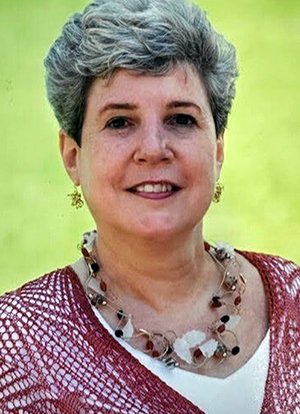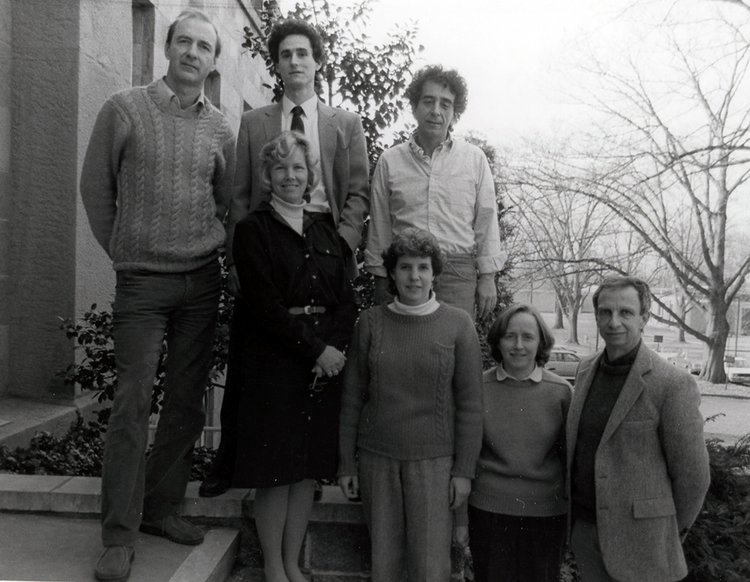In Honor of Emerita Psychology Professor Deborah Kemler Nelson

President Valerie Smith shared the following message with the campus community on November 28, 2023:
Dear Friends,
With deep sadness, I write to share the news that Deborah Janet Glaser Kemler Nelson, the Centennial Professor Emerita of Psychology, died peacefully in Newtown Square, Pa., on Monday, Nov. 13. She was 77.
Debby, who served on the faculty for 34 years, is remembered as a role model for students and colleagues alike for her prodigious scholarship in early child development as well as for her inspiring teaching, thoughtful generosity, and sage advice.
Debby is survived by Larry, her husband of more than 40 years; their children Matthew, Jordan, and Stacey; three grandchildren; her sister Susan; and many nieces and nephews. A celebration of her life took place on Saturday, Nov. 18. In lieu of flowers, the family welcomes donations in Debby’s memory to Longwood Gardens.
I invite you to read more below about Debby and her many lasting contributions to our community.
Sincerely,
Val Smith
President
In Honor of Emerita Psychology Professor Deborah Kemler Nelson
Deborah Janet Glaser Kemler Nelson, the Centennial Professor Emerita of Psychology, died Monday, Nov. 13, at age 77. With her passing, Swarthmore has lost a deeply respected teacher, meticulous researcher, and trusted and cherished colleague. Nelson’s research is heavily cited among scholars of early child development, and she is known for her rigorous scientific analysis and sterling reputation in the field of cognitive development.
“Through the many years that Deborah Kemler Nelson and I were colleagues, I valued both her professionalism and her personal warmth,” says Centennial Professor Emerita of Anthropology and Provost Emerita Jennie Keith. “A talented and well-recognized scientist, she was also dedicated to the well-being of her students, colleagues, and the College itself.”
“Debby was a model teacher-scholar,” says Associate Professor and Chair of Psychology Daniel Grodner. “She was an internationally known researcher who developed influential methods for investigating the linguistic knowledge of pre-verbal infants, and made major contributions to our understanding of early language and conceptual development. Despite her achievements, she was a humble and generous colleague, mentor, and instructor.”
“For decades, Deborah was a key figure in the Department of Psychology,” says Kenneth Gergen, the Gil and Frank Mustin Professor Emeritus of Psychology. “Her keen and inquiring intelligence, dedication to high-quality research and teaching, and warm acknowledgement of all about her provided the solid ground on which we walked.”
Born in Boston, Mass., Nelson graduated from Newton South High School. She was a standout student in psychology at Pembroke College, then the women’s college in Brown University, and graduated summa cum laude in 1967. She continued in psychology at Brown, where she earned an M.A. and a Ph.D.
After Brown, Nelson joined the psychology faculty at the University of Pennsylvania, where she had a lab and supervised graduate students. Barry Schwartz, the Dorwin P. Cartwright Professor Emeritus of Social Theory and Social Action, convinced her in 1978 to come to the College, where her teaching interests included developmental psychology, cognitive development, concepts and categorization, infancy, human intelligence, and nature and nurture.
“Debby had an incisive, analytical mind, which enabled her to do really important research on the cognitive development of children,” Schwartz says. “But what was most impressive to me about Debby was her intellectual and moral integrity. I had complete trust in everything she said and did.”
At Swarthmore, Nelson continued her research and was known for her inclusive approach. She frequently collaborated with her students, ultimately publishing more than a dozen articles with them, including one on young children’s categorization ability with 11 student co-authors. In 2008, an article Nelson published with two of her students in the Journal of Cognition and Development received the Editors’ Choice Award for its relevance, substance, methodological rigor, quality of expression, and ingenuity of ideas.
“Debby cherished her work with students,” says Andrew Ward, the William R. Kenan, Jr. Professor of Psychology, “and they flourished under her guidance.”
“She was the perfect research mentor: demanding and firm so that her students learned to think critically, caring and concerned so that her students remained encouraged and highly motivated,” says Centennial Professor Emeritus of Psychology Allen Schneider. “Students became genuine collaborators and she continued to serve as their mentor as they pursued graduate school and their careers.”
Some of those collaborations proved especially fruitful. Nelson took special pride in the role reversal when, working with a colleague for whom she had served as major advisor and dissertation supervisor years before, some of their articles on infant speech perception listed his name first and hers second.

The Psychology Department in the 1986 edition of the Halcyon. Clockwise from left: Ken Gergen, Phil Kellman, Barry Schwartz, Allen Schneider, Julia Welbon, Debby Kemler Nelson, and Didi Beebe.
Nelson was also a leading scholar on how infants understand the nature of objects. In her seminal article on the subject, she and her team recruited 112 2-year-olds and designed three experiments. Her results indicated that children name new objects based on their function rather than physical appearance, which had implications for studying the origins of children’s technological understanding.
Nelson received significant research support from the National Science Foundation. She was also a Michener Faculty fellow, a Mellon Tri-College fellow, and a Lang Faculty fellow. Nelson received the Lindback Distinguished Teaching Award in 2002. She received an honorary doctorate from the University of Richmond in 2006.
“Especially close to her heart, and beneficiaries of her dedication, were women students and women members of the faculty,” Keith says.
Professor of Psychology Jane Gillham remembers Nelson as one of only two tenure-track women in the Psychology Department “and among only a couple Psychology faculty members with school-age children” when she arrived at Swarthmore 25 years ago as a temporary leave replacement. “Debby was an incredibly generous and supportive chair and colleague who treated me as an equal member of the Department from the very beginning,” she says. “She was in many ways a role model and is one of the people who made Swarthmore a special place for me over the years.”
Nelson chaired the Psychology Department several times throughout her career. Each time, Julia Welbon, now retired, served as the Department’s academic coordinator.
“Debby was a person of insight who always listened first and gave very thoughtful comment and advice,” Welbon says. “She inspired growth and joy in the opportunity to work together. She was generous with her support, both officially and personally. And she became a dear friend of 45 years’ standing.”
“As chair, she showed a deep understanding of the issues and problems that faced the Department and College, superb organizational skills, and intelligent and dedicated leadership,” Schneider says. “The tasks were often monumental, and she carried them out with energy, tact, good humor, and imagination.”
“Our interests in psychology were quite different,” says Jeanne Marecek, the William R. Kenan Jr. Professor Emerita of Psychology. “Despite our different viewpoints, I valued her wholehearted engagement in the shared mission of the Department, the clarity of her thinking, and her enthusiasm for scholarly debate.”
At her campus retirement party in 2012, Nelson expressed gratitude to those gathered and to “so many members of this community for making this such a really wonderful and rewarding place to spend a large part of my life.”
At that event, Nelson also learned of her colleagues’ intention to recognize her outstanding contributions to the intellectual growth of students by naming a speaker series in her honor that would focus on young graduates who pursued a career in academic psychology. Inviting these alums to present colloquia to the Department continues to provide opportunities for them to interact with and inspire current students considering futures in the field.
Nelson championed that and other forms of community building throughout her career. She and her husband frequently hosted department dinners at their house in Swarthmore. She even secured funds for the junior faculty in Psychology to get together for after-work gatherings.
“Debby was just a rock,” Schwartz says. “And she was a sweet rock, always offering her views with kindness and compassion. I can't overstate how much I valued Debby as a friend and a colleague.”
“In every interaction I had with Debby, she was class personified — unfailingly kind, supportive, and generous,” Ward says. “Debby was a tireless champion for her colleagues and her students, all while remaining incredibly humble with regard to her own remarkable research program. She modeled what it meant to be a generous citizen of the College and the Department. Anyone who was fortunate to have known Debby Kemler Nelson is a better individual for it.”


